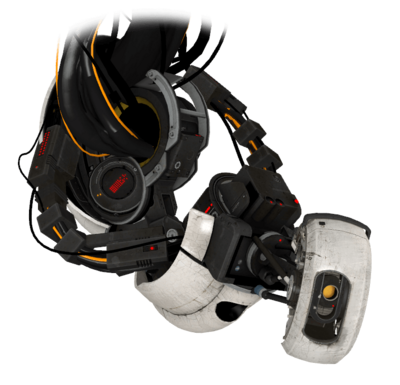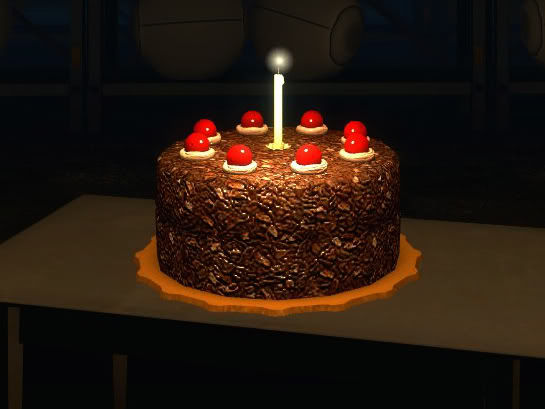Growing up I had a huge imagination and loved to play games. This could be board games, video games, card games, games outside with friends, make believe, or any number of other things. When it came right down to it I just wanted to have fun.
I had a ton of toys too, a whole chest full of them (that I feel asleep in once!) but I would often find myself picking up anything around me and "turning" it into something else. A hammer held by its head would become a machine gun or if I flipped it so that it was flat then I had a dreadnaught starship (creatively named The Hammer). Much to his lament, my dads tool chest became a whole new playground for me!
As I got older this ability never went away but my focus shifted more and more toward video games. I played the classics on the 90's consoles but I count my first real video game addiction as Unreal Tournament. My brother introduced me to it one fateful day, I walked into the den and saw him playing something new on the computer. I was immediately entranced by how fast things were moving and all the gore. He noticed me and asked if I wanted to try? I excitedly replied "Yes!". I remember sitting down, him placing my hand over WASD (I can remember how foreign that felt! I was only used to home row at that point) and telling me what to do. I immediately died several times but then it happened, I got my first kill! I was hooked from that moment on.
This lead to a lifelong obsession with video games. Battlefield 1942, Medal Of Honor: Allied Assault, Anarchy Online, Diablo II, and the Half Life series are just a few of the games that dominated my teenage years. Going into college I decided that I wanted to study the medium that I spent so much of my time on so I majored in video game design. I threw myself into my studies (as much as someone with undiagnosed ADD could) and realized that I had a passion for all things games.
I learned how to analyze games and I became very good at it, so good that for a time I couldn't actually have fun playing a game because I was too busy asking questions: Why did they do it this way? Was this intentional or an artifact from that other thing that they decided to leave in? Why is this element fun?
These days I play more games that I make but I will always be a student of them. When I play them I am constantly analyzing them, breaking them down into their base elements to discover how they work and why they are fun. Recently I had a conversation with someone that made me think "Hey, you should write something about this!" and so here I am.
... Games are merely a means to an end. On their own, games are just artifacts---clumps of cardboard of bags of bits. Games are worthless unless people play them. Why is this? What magic happens when games are played?
When people play games, they have an experience. It is this experience that the game designer cares about. Without the experience, the game is worthless.
-- Jessie Schell, The Art of Game Design: A book of Lenses
A game is really a delivery mechanism for an experience. That experience can be anything from flying a plane to being a space marine to getting ridiculed by a dog because of your terrible aim. Whatever it might be, conveying an experience is the reason we make games and taking part in it is the reason we play them.
But how does one make a compelling experience? I don't think there is any one, or right, answer to this question but here are a few things that I think can help:
- Listen to who you want to partake in the experience you are creating. Find out what makes them happy and excited. Listen to the feedback they give you along the way. Your audience is going to be a huge help in making something wonderful.
- Learn about the human mind. Learning how we as humans perceive things will help to inform how to create experiences that seem real even though that are not.
- Be informed about the experience you are trying to create. Red Dead Redemption did a spectacular job of delivering to the player the experience of being in the wilderness because they learned what the sounds and sights would be.
- Get your game out there as soon as you can so that people can play test it. You may have the most compelling experience ever but the game is the vehicle and if that vehicle doesn't function properly then it wont deliver the experience very well (if at all!).
If the game is the vehicle, gameplay elements are what that vehicle are made of. The mechanics, rules, controls, items, power-ups, and basically everything else are all gameplay elements. You can almost think of these as tiny vehicles that deliver tiny experiences that all add up to the major experience you are trying to create. Having the right elements is key and you must take care to include what is needed and get rid of what might be an impediment to delivering something wonderful.
You must also be as flexible as possible with these elements. You might start off thinking that you want your game to be a first person shooter and go down that path, bringing in all the traditional elements of a FPS. Soon though, you may realize that actually this game is better suited having an isometric view meaning that you need to rework basically the rest of the game. That's okay! It might be frustrating but remember, as a game designer you are only really concerned the experience and the game is just our way of delivering it!
Let's take a look at a game that in my humble opinion does a fantastic job of delivering an incredible and enjoyable experience: Portal
Portal is a first person puzzle game made by Valve that was released on October 9th, 2007 as a part of the Orange Box. You play as Chell, a silent protagonist trying to survive a series of puzzles being administered by a homicidal and snarky AI named GLaDOS. You complete these puzzles with the help of your portal gun, physics, and some simple objects in each level. Honestly if you have not played this game, stop reading this and go play it right now. I promise you will not be disappointed!
GLaDOS
Portal can really be broken down into a handful of gameplay elements that deliver its experience:
- Puzzles
- First Person
- Physics
- Simple objects (I love my companion cube)
- Story
- Single Player
- Humor
- Cake
The gameplay elements are simple but they are woven together to create something fantastic:
- The puzzles start off simple, getting harder as the game progresses. As the player completes them they get the experience of solving something.
- To complete these puzzles the player must use some physics and simple objects. A first person perspective makes it easier (and more thrilling!) to gauge arcs before you hurl yourself through the air.
- When a puzzle is completed the player experiences a feeling accomplishment as well anticipation for the next puzzle
- The story paints the main character as the only one left alive in a large complex that seems to have once been a large laboratory. As you progress through the game you are constantly reminded that people used to occupy this space but for some reason you are the only one left. The game being single player really helps to drive the experience of isolation home.
- The characters...or really the antagonist (since she is the only one that talks) employ a wonderfully dark and sarcastic sense of humor. GLaDOS just want's to murd...gather data through tests but along the way she will say somethings that are really kind of messed up. The "WTF is going on" experience along with the experience of feeling like this robot might be trying to kill you is delivered quite well.
- And at the end of all the tests you will get to experience some cake. Everybody loves cake!
Portal also employs something else that makes the experience it delivers amazing: Emergent Gameplay.
... Nothing can be more rewarding for the player than when he tries some obtuse, unobvious method for solving a puzzle or a combat situation and it actually works.
-- Richard Rouse III, Game Design: Theory & Practice
Emergent gameplay is enabled by a game that has well defined complex systems and rules that the player can easily understand. Through this understanding they begin to explore and test the boundaries of the world to come up with solutions to the problems presented to them and these solutions may not be something the game designer ever thought of.
Portal pulls this off masterfully. There are multiple ways to solve most of the puzzles in the game. This leads players to having unique solutions which in turn leads to players sharing those solutions with others. These other players then go back and play the game again to see if a puzzle can really be solved in this new way. This delivers an experience of shared play, discoveries, problem solving, and teamwork that no one expects from a single player game!
The elements Portal uses are not in themselves unique but the way they are woven together make this game one of the best examples of how a game can deliver and experience that is wonderful, unique, and memorable.
Making a game, delivering an experience, is hard and there is no right or wrong way to do it. My process thus far has been:
- Write down my idea
- Flesh out the gameplay elements
- Prototype those elements to see if they work together like I want them to
- Start building the actual game
You might notice I am missing a step about figuring out the experience but I have found that the idea is actually the experience in most cases. For example, the game idea might be "A game about being a medic in WW2" informing me that the over all experience I am trying to achieve is being a medic.
You don't have to be a programmer to make a game. You don't even need a computer! Board games are a great way to get into game making. If you do want to go the computer route I suggest checking out Unity Game Engine. It has a free version and great documentation. Also check out the books I quoted in this, they are both stuffed full of great knowledge on how to make games.



